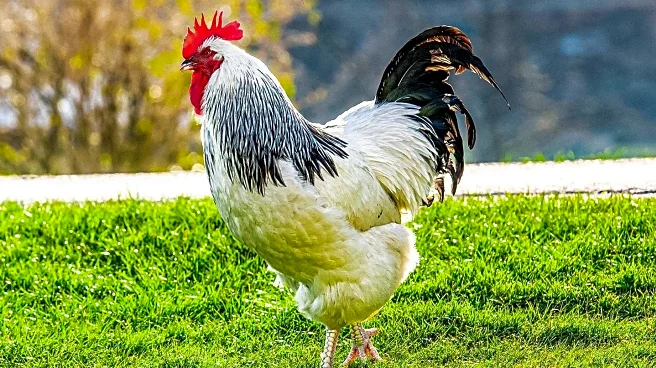What's Happening?
In Calgary, a local urban hen owner and member of CLUCK Canada, a group advocating for urban chicken keeping, was recently served by city bylaw enforcement. The owner was ordered to remove her three hens, which she kept as pets, due to regulations prohibiting livestock possession within city limits. This incident highlights ongoing tensions between urban pet owners and municipal regulations that restrict the keeping of certain animals in residential areas. The owner expressed fear for her pets, underscoring the emotional impact such enforcement actions can have on individuals who view their animals as family members.
Why It's Important?
The enforcement of bylaws against urban hen keeping in Calgary reflects broader regulatory challenges faced by urban pet owners across the U.S. and Canada. As cities grow and urbanize, regulations often lag behind evolving lifestyles that include non-traditional pets. This situation raises questions about the balance between public health, safety, and individual rights to keep animals. The emotional distress experienced by pet owners in these situations can lead to increased advocacy for changes in local laws, potentially influencing future policy decisions regarding urban animal keeping.
What's Next?
The incident may prompt further discussions among local government officials, animal rights groups, and urban pet owners about the possibility of revising bylaws to accommodate non-traditional pets. Advocacy groups like CLUCK Canada may increase efforts to lobby for changes in regulations, aiming to create a more inclusive environment for urban pet keeping. Additionally, public forums or community meetings could be organized to address concerns and explore potential compromises that satisfy both regulatory requirements and the desires of pet owners.
Beyond the Headlines
This situation highlights the cultural shift towards more diverse pet ownership in urban settings, reflecting changing attitudes towards animals and their roles in human lives. It also raises ethical questions about the rights of individuals to keep animals as pets versus the need for regulatory oversight to ensure community safety and health standards. Long-term, this could lead to a reevaluation of what constitutes acceptable urban pet ownership, potentially influencing cultural norms and legal frameworks.










